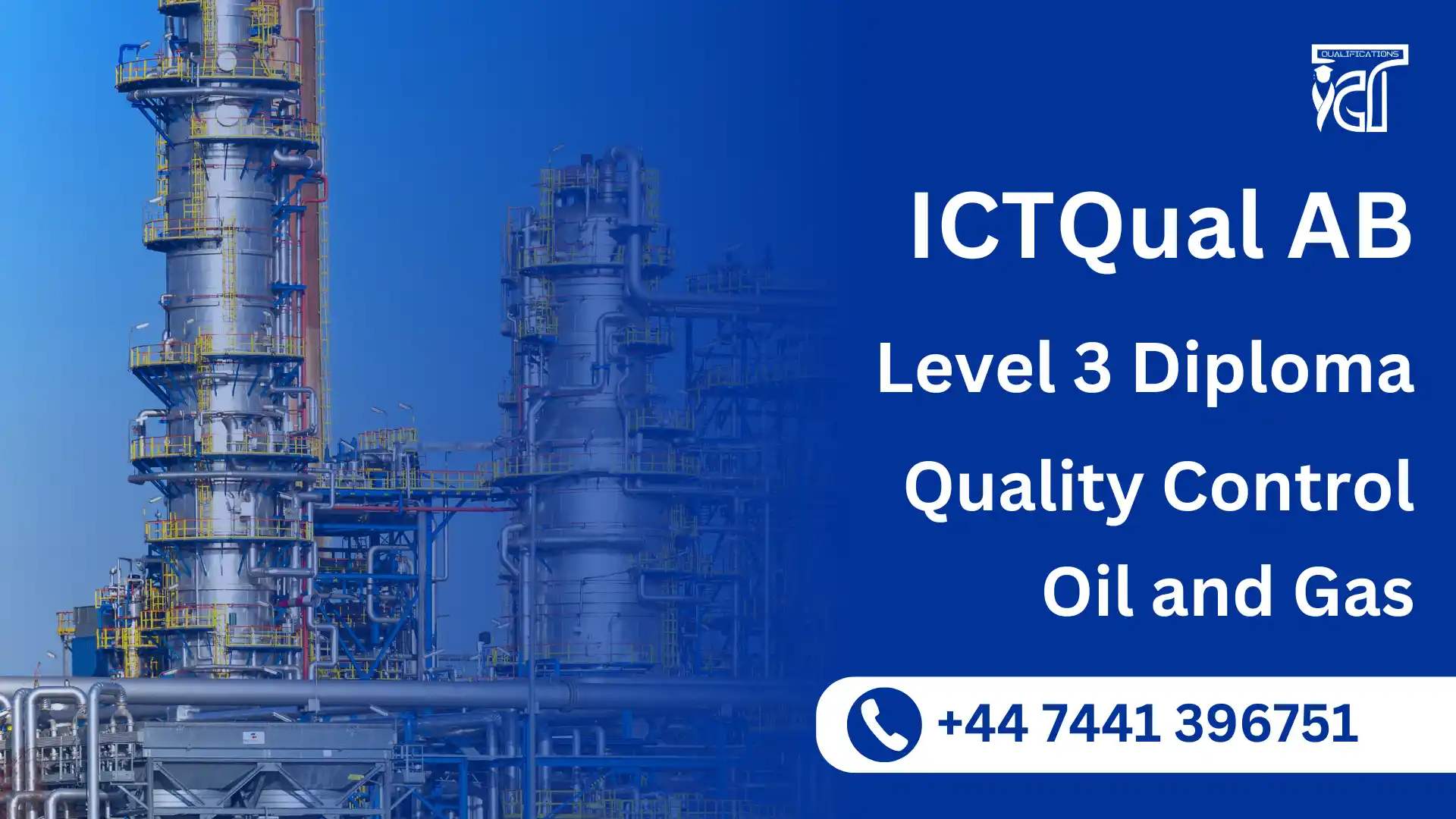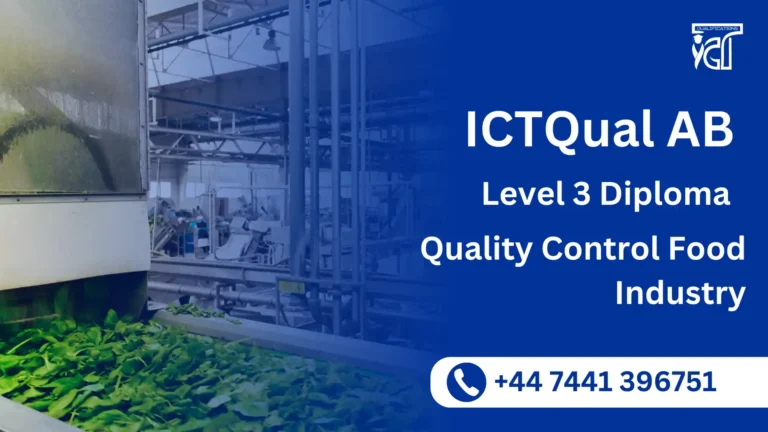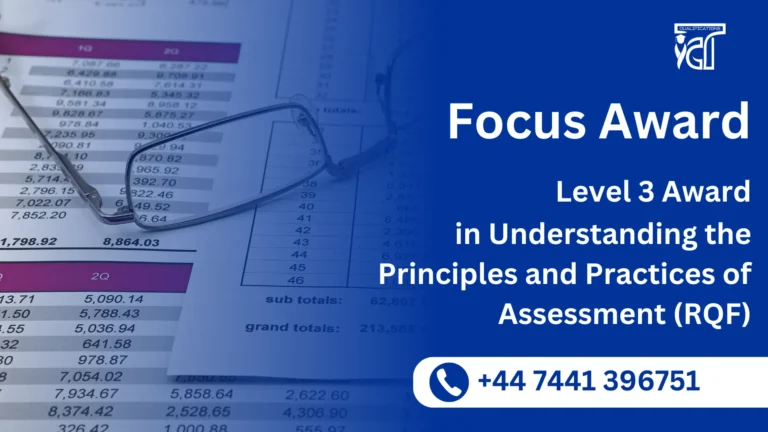The ICTQual AB Level 3 Diploma in Quality Control Oil and Gas is a comprehensive vocational qualification designed to equip learners with the technical knowledge and practical skills necessary to ensure quality standards in oil and gas operations. The course focuses on core principles of quality control as applied to upstream, midstream, and downstream segments of the oil and gas industry, including pipeline inspection, materials testing, safety compliance, and documentation procedures.
This diploma program is ideal for individuals aiming to begin or enhance their careers in quality control roles within the oil and gas sector. Learners will gain hands-on experience with industry-standard tools and methodologies, enabling them to carry out inspections, monitor processes, and contribute to the safe and efficient delivery of energy projects. With a strong emphasis on regulatory standards and operational excellence, this qualification prepares students to meet the demands of employers in one of the world’s most vital and high-risk industries.
ICTQual AB Level 3 Diploma in Quality Control Oil and Gas
This qualification, the ICTQual AB Level 3 Diploma in Quality Control Oil and Gas, consists of 6 mandatory units.
- Principles of Quality Assurance in Oil and Gas Projects
- Non-Destructive Testing (NDT) Methods and Applications
- Welding Inspection and Material Verification
- Documentation and Quality Record Management
- Non-Conformance Reporting and Corrective Actions
- Site Safety and Environmental Compliance Standards
Here are the learning outcomes for each study unit:
Principles of Quality Assurance in Oil and Gas Projects
- Understand the role of quality assurance in oil and gas project execution
- Identify key QA processes and standards applied across project phases
- Apply quality planning methods to support consistent project outcomes
- Monitor quality objectives and ensure alignment with operational requirements
Non-Destructive Testing (NDT) Methods and Applications
- Recognise various NDT methods used in oil and gas inspections
- Apply basic principles of visual, ultrasonic, magnetic, and radiographic testing
- Interpret test results to identify defects in welds and components
- Support NDT processes in accordance with international standards
Welding Inspection and Material Verification
- Understand welding procedures, symbols, and quality requirements
- Verify welding materials and consumables against specification sheets
- Perform basic weld inspections and evaluate workmanship quality
- Identify common weld defects and report findings effectively
Documentation and Quality Record Management
- Maintain accurate and complete quality documentation for inspections and audits
- Organise inspection reports, certificates, and material traceability records
- Understand documentation control procedures in oil and gas projects
- Ensure compliance with client and regulatory documentation requirements
Non-Conformance Reporting and Corrective Actions
- Identify and document non-conformances in materials, processes, or execution
- Prepare clear and accurate non-conformance reports
- Recommend corrective and preventive actions based on root cause analysis
- Support follow-up activities to close out quality issues
Site Safety and Environmental Compliance Standards
- Understand key safety and environmental regulations relevant to oil and gas sites
- Apply site safety protocols during quality control activities
- Identify environmental risks and implement basic control measures
- Promote safety awareness and environmental responsibility in QA operations
Benefits of the ICTQual AB Level 3 Diploma in Quality Control Oil and Gas
Industry-Relevant Skills
Gain practical knowledge and hands-on experience in quality control techniques specific to the oil and gas sector, including inspection, testing, documentation, and compliance with industry regulations.
Improved Employability
Enhance your career prospects in a high-demand field by acquiring a recognized qualification that demonstrates your competence in maintaining quality standards across oil and gas operations.
Regulatory Compliance Knowledge
Understand national and international standards such as ISO, ASME, and API, preparing you to work in environments that require strict quality and safety adherence.
Career Advancement Opportunities
Open doors to entry-level and supervisory roles in quality assurance, inspection, and operations within oil refineries, drilling companies, pipeline projects, and more.
Foundation for Further Study
Build a strong base to progress into higher-level diplomas or specialized training programs in quality management, health and safety, or engineering disciplines within the oil and gas industry.
Real-World Applications
Apply theoretical concepts in real-life scenarios, gaining experience in evaluating materials, processes, and equipment used in oil and gas projects.
Global Opportunities
Prepare for employment both locally and internationally, as the qualification aligns with global industry standards, making your skills transferable across regions.
Enhanced Safety Awareness
Learn how quality control contributes to operational safety, helping to prevent failures, minimize risk, and protect lives and the environment.
This diploma provides a valuable stepping stone for individuals seeking to build a stable and rewarding career in one of the world’s most crucial and technically challenging industries.
Who is the ICTQual AB Level 3 Diploma in Quality Control Oil and Gas Best Suited For?
The ideal learner for the ICTQual AB Level 3 Diploma in Quality Control (Oil and Gas) is someone who:
- Aspires to work in the oil and gas industry, particularly in roles related to quality control, inspection, or assurance.
- Has a keen interest in technical operations, industrial safety, and maintaining standards in high-risk environments.
- Is detail-oriented and analytical, with the ability to follow precise procedures and spot inconsistencies in materials or processes.
- Seeks to enter the workforce quickly or improve their qualifications for advancement in oil and gas projects or related engineering fields.
- Is a recent school graduate, entry-level technician, or junior quality inspector aiming to build foundational knowledge and practical skills.
- Wants an industry-recognized qualification to pursue employment in both local and international oil and gas markets.
- May already be working in the energy or industrial sector, looking to upskill or shift into a quality-related role.
This program is suitable for learners committed to ensuring high standards of safety, performance, and compliance in one of the most demanding global industries.
Entry Requirements
Register Now
Qualification Process
Qualification Process for the ICTQual AB Level 3 Diploma in Quality Control Oil and Gas
- Self-Assessment:
Begin by evaluating your eligibility to ensure you meet the qualification requirements, including work experience, knowledge, and language proficiency. - Registration:
Complete your registration by submitting the required documents, including a scanned copy of a valid ID, and paying the registration fee. - Induction:
An assessor will conduct an induction to confirm your eligibility for the course and explain the evidence requirements. If you do not meet the criteria, your registration will be cancelled, and the fee will be refunded. - Assignments & Evidence Submission:
Provide all assignments and the necessary evidence based on the assessment criteria outlined in the course. If you are unsure of the required evidence, consult with the assessor for guidance on the type and nature of evidence needed. - Feedback and Revision:
The assessor will review your submitted evidence and provide feedback. Evidence that meets the criteria will be marked as “Criteria Met,” while any gaps will be identified. You will be asked to revise and resubmit if needed. - Competence Evidence:
Submit final evidence demonstrating that all learning outcomes have been met. This evidence will be marked as “Criteria Met” by the assessor once it is satisfactory. - Internal Quality Assurance (IQA):
The Internal Quality Assurance Verifier (IQA) will review your evidence to ensure consistency, quality, and compliance with standards. - External Verification:
The IQA will submit your portfolio to ICTQUAL AB External Quality Assurance Verifiers (EQA) for final confirmation. The EQA may contact you directly to verify the authenticity of your evidence. - Certification:
Upon successful completion of all checks, ICTQUAL AB will issue your official certificate, confirming that you have attained the ICTQual AB Level 3 Diploma in Quality Control Oil and Gas.







